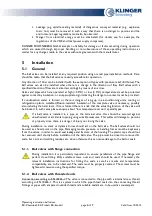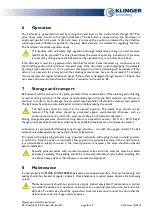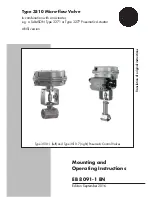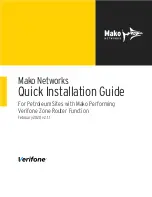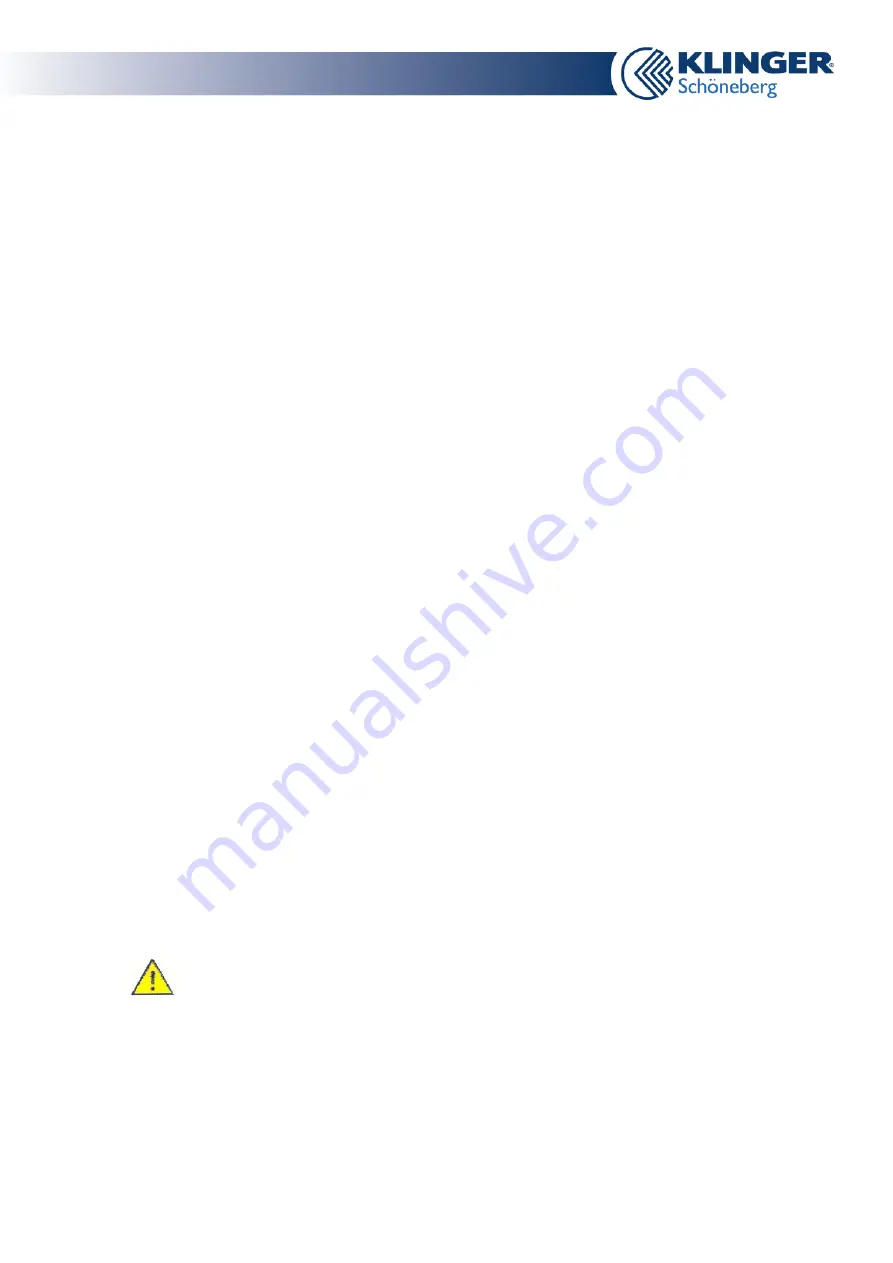
Operating instruction ball valves
RK-Chemoball, RK-Proball, RK-Ecoball
page
3
of
7
Valid from 12/2013
•
Actuation of the ball valves should be uniform and not too fast, since movements which
are too fast or jerky can cause overloading of the system through medium surges (water
impacts).
•
Heating or cooling should not be too fast in order to prevent overloading of the material
through ununiform temperature distribution
•
If pneumatic or electro-mechanical drives are used safety of the operating or maintenance
personnel should be ensured since with these drives there is a danger of pinching or
squeezing. If necessary guards should be fitted.
4.2
Work on the valve
•
Work on the valve should be carried out only in a depressurized and cooled state. At the
same time the temperature of the medium should be below the evaporation temperature
in all areas coming into contact with the medium.
•
Work on (driven) valves should be carried out only with the system at a standstill. It is
absolutely essential that the procedure for shutting down described in the operating
instructions is followed. Valves which come into contact with media which are detrimental
to health must be decontaminated.
•
Immediately after completion of the work all safety devices and guards must be refitted or
put back into operation.
4.3
Personnel
The valves should be used only by expertly trained personnel. KLINGER SCHÖNEBERG ball valves
have been manufactured according to the current state of the art, and are reliable and safe to operate.
However, these valves can be dangerous if they are used by untrained personnel or are used
improperly, since they are comparable with pressure vessels. The following points must therefore be
observed.
•
Personnel must be expertly trained.
•
The operating firm must ensure that the contents of the operating instructions have been
completely understood by personnel.
•
Personnel responsible for operation, servicing and installation must understand the
interactions between the valve and plant.
•
Faulty operation of a valve can lead to serious consequences, e.g.:
•
Leakage of medium
•
Standstill of the plant / machine
•
Impairment (reduction / increase of the effect / function) of the plant / machine
•
Failure of important functions of the valve / plant
•
Failure of specified methods for maintenance and repair
•
Endangering of persons through thermal, electrical, mechanical or chemical effects
•
Endangering of the environment through leakage of dangerous materials
Improper handling can cause danger to persons, property and the environment through
leaking medium. Therefore, in addition to observing these operating instructions, all relevant
accident prevention regulations and technical rules must also be followed.
4.4
Instructions for the operator
•
If hot or cold valve components cause danger (e.g. housing components or hand lever)
these components must be guarded to prevent contact/touching by the operator
(customer’s obligation)




